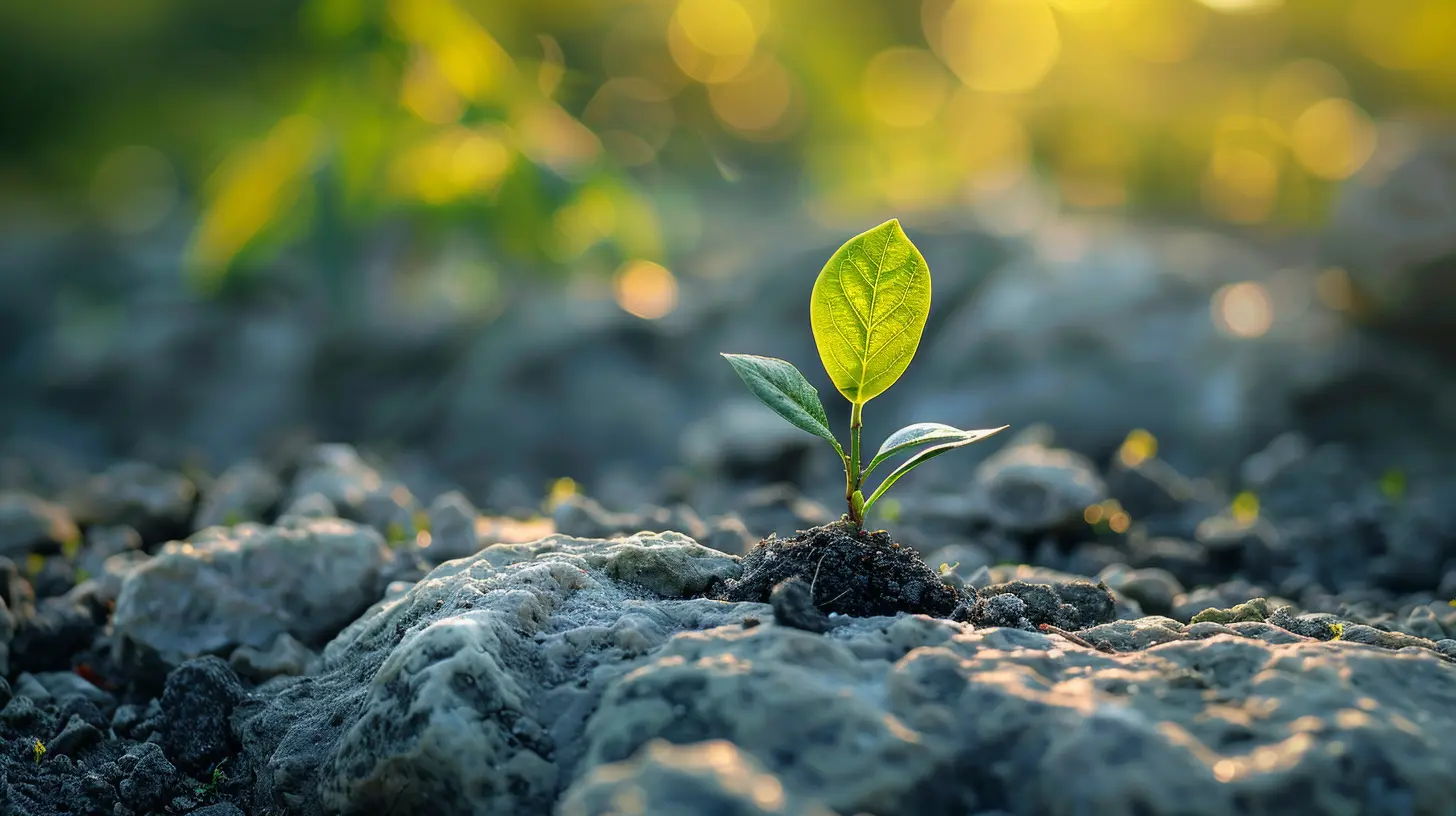Harnessing the Power of Hope: How Belief in Better Days Builds Resilience
23 May 2025
Hope is a powerful emotion. It's that quiet voice whispering, "Things will get better," even when the storm is raging around you. In a world filled with uncertainty, challenges, and setbacks, hope acts as a lifeline. But it’s not just a fleeting feeling; hope is a force that can fuel our resilience and help us bounce back when life gets tough.
You’ve probably heard the saying, “When the going gets tough, the tough get going.” But what really keeps the tough going? More often than not, it’s hope. When we believe that brighter days are ahead, it makes the struggle to get there a little less daunting. Today, we’re going to explore how harnessing the power of hope can build resilience and why this simple belief in better days is more crucial than ever.

What Exactly Is Hope?
Before we dive in, let’s break down what hope really is. Hope isn’t just wishful thinking or blind optimism. It’s not about ignoring reality or pretending everything’s fine when it’s not. Hope acknowledges the difficulties we face but chooses to focus on the possibility of things improving.In psychology, hope is defined as a positive motivational state that involves the expectation of achieving goals and the pathways to achieve them. In simpler words, it’s not just believing things can get better, but also having a plan (or at least the belief that you can find one) to make things better.
Hope vs. Optimism
You might be wondering: Isn’t hope the same thing as optimism? Kind of, but not exactly. Optimism is more of a general belief that good things will happen, whereas hope is more goal-oriented. Hope is like having a road map when you’re lost, while optimism is like believing you’ll find your way, even if you don’t have a map.Hope is active—it spurs you into action. Optimism, on the other hand, can sometimes be passive. When you harness hope, you aren’t just sitting around waiting for things to change; you’re actively working toward a better future.

Why Hope Is Critical for Resilience
Resilience is the ability to bounce back from hardships, disappointments, or adversity. Think of resilience like a rubber band—when life stretches you to your limits, resilience is what helps you snap back into shape. But where does resilience come from? A huge part of it comes from hope.Here’s the thing: When you're going through a rough patch, it’s easy to feel like you’re stuck in a never-ending loop of struggle. Without hope, it’s hard to see a way out. You might feel powerless, like things will never improve. But when you have hope, you have a reason to keep going. You have a vision of a better future that motivates you to push through—even when it feels impossible.
Hope Helps You Handle Setbacks
Setbacks are a part of life. No one gets through this crazy ride unscathed. Whether it’s losing a job, going through a breakup, or facing a health challenge, life will throw curveballs. That’s a given. What’s not given, though, is how we respond to those curveballs.People who have hope are more likely to handle setbacks with grace and determination. Instead of giving up or spiraling into a negative mindset, they see obstacles as temporary. They believe there’s a way forward, even if they don’t immediately know what that way is. This mindset is key to resilience because it helps you stay focused on the bigger picture rather than getting stuck in the moment.
Hope Fuels Problem-Solving
When you're hopeful, you're more likely to engage in problem-solving. Instead of feeling defeated by a challenge, hope drives you to look for solutions. It’s like having an internal compass that keeps pointing you toward the direction of progress.Someone without hope might see a problem as insurmountable, while a hopeful person might see it as a puzzle to be solved. This shift in perspective makes all the difference when it comes to resilience. Hope provides the energy to tackle life's problems head-on rather than surrendering to them.

The Science Behind Hope and Resilience
It’s not just feel-good talk—there’s actual science backing up the connection between hope and resilience. Research has shown that people who are more hopeful tend to have better mental and physical health. They’re more likely to cope with stress, recover from illness, and maintain a positive outlook even in difficult circumstances.The Biology of Hope
When we feel hopeful, our brain releases chemicals like dopamine and endorphins. These are the "feel-good" chemicals that help reduce stress and improve our overall mood. In contrast, when we feel hopeless, our brain produces fewer of these chemicals, which can lead to feelings of depression and anxiety.In fact, studies have shown that hope can even strengthen our immune system. It’s like hope gives our body a little extra armor to protect us against the physical toll of stress and adversity.
Hope’s Role in Mental Health
Hope plays a significant role in mental health. People who have a strong sense of hope are less likely to experience anxiety and depression. Why? Because hope gives us a sense of control. When we feel hopeful, we believe that we have the ability to influence our future, even if the present feels chaotic.For those dealing with mental health challenges, hope can be a lifeline. It provides a reason to keep going, a light at the end of the tunnel. Therapists often work with their clients to build hope because they know how crucial it is for recovery and well-being.

How to Cultivate Hope in Your Life
Now that we know why hope is so important, the big question is: How do we cultivate it? Hope isn’t something you’re either born with or without. Just like resilience, it’s a skill you can develop over time. Here are some practical ways to harness the power of hope in your daily life:1. Set Small, Achievable Goals
One of the best ways to build hope is by setting small, achievable goals. When you accomplish these goals, no matter how minor they may seem, it reinforces the belief that progress is possible. It’s like giving yourself little wins that build your confidence over time.Don’t overwhelm yourself by trying to tackle everything all at once. Instead, break things down into manageable steps. Each step forward, no matter how small, is a step toward a better future.
2. Focus on What You Can Control
A lot of our anxiety and hopelessness comes from focusing on things we can’t control. The economy, global politics, other people’s actions—these are all things outside of our control. But when we shift our focus to what we can control, it empowers us.You can control your actions, your mindset, and how you respond to challenges. By focusing on these things, you create a sense of agency, which fuels hope.
3. Surround Yourself with Positive Influences
The people we surround ourselves with have a huge impact on our mindset. If you’re constantly around negative, pessimistic people, it’s going to be hard to feel hopeful. On the other hand, being around positive, supportive individuals can help you maintain a hopeful outlook.This doesn’t mean you should avoid people who are struggling or going through tough times. It just means you should seek out relationships that uplift you and encourage hope.
4. Practice Gratitude
Gratitude and hope go hand-in-hand. When you practice gratitude, you shift your focus from what’s lacking to what’s abundant in your life. This shift in perspective helps you see the good, even in difficult situations, which naturally leads to more hope.Try keeping a gratitude journal where you write down a few things you’re thankful for each day. Over time, you’ll start to notice that even in the midst of challenges, there are always things to be hopeful for.
5. Visualize a Better Future
Visualization is a powerful tool for building hope. When you imagine a future where things are better, it makes that future feel more attainable. Close your eyes and picture yourself overcoming your current challenges. What does that future look like? How does it feel?By regularly visualizing a better future, you train your brain to believe that it's possible. And when you believe something is possible, you're more likely to take the steps necessary to make it happen.
The Ripple Effect of Hope
Here’s the beautiful thing about hope: It’s contagious. When you cultivate hope in your own life, it doesn’t just benefit you—it spreads to those around you. Your hope can inspire others to believe in their own ability to overcome challenges. It’s like a ripple in a pond—your hope creates waves that touch everyone you come into contact with.Hope as a Collective Force
In times of crisis or collective hardship, hope becomes even more crucial. Think about communities that have faced natural disasters or large-scale tragedies. Often, it’s their shared sense of hope that helps them rebuild and move forward. Hope isn’t just a personal tool—it’s a collective force that can bring people together and fuel resilience on a larger scale.
Final Thoughts: Hope Lights the Path to Resilience
In the end, hope is more than just a feel-good emotion. It’s a tool—a powerful one—that helps us navigate life’s challenges. When we believe in better days, we find the strength to keep going, even when the road gets rocky. Hope lights the path, and resilience is the strength that helps us walk it.So, the next time life throws a curveball your way, remember: Hope isn’t about pretending everything’s perfect. It’s about believing that things can and will get better—and knowing that you have the power to make it so.
all images in this post were generated using AI tools
Category:
Psychological ResilienceAuthor:

Gloria McVicar
Discussion
rate this article
3 comments
Eli Patterson
Hope acts as a psychological anchor, fostering resilience in challenging times. By cultivating a belief in better days, individuals not only enhance their coping mechanisms but also inspire positive change, creating a powerful ripple effect that strengthens communities and relationships.
June 8, 2025 at 2:28 AM

Gloria McVicar
Thank you for your insightful comment! I completely agree—hope truly is a catalyst for resilience and positive change, reinforcing our connections and communities.
Mindy Griffin
This article beautifully illustrates how cultivating hope not only enhances resilience but also fosters a proactive mindset for overcoming adversity.
June 2, 2025 at 4:43 AM

Gloria McVicar
Thank you for your insightful comment! I'm glad you found the article's message about hope and resilience impactful.
Bethany Estes
Optimism fuels resilience profoundly.
May 30, 2025 at 4:42 PM

Gloria McVicar
Thank you for your insightful comment! Indeed, optimism plays a crucial role in fostering resilience and empowering individuals to navigate challenges.



